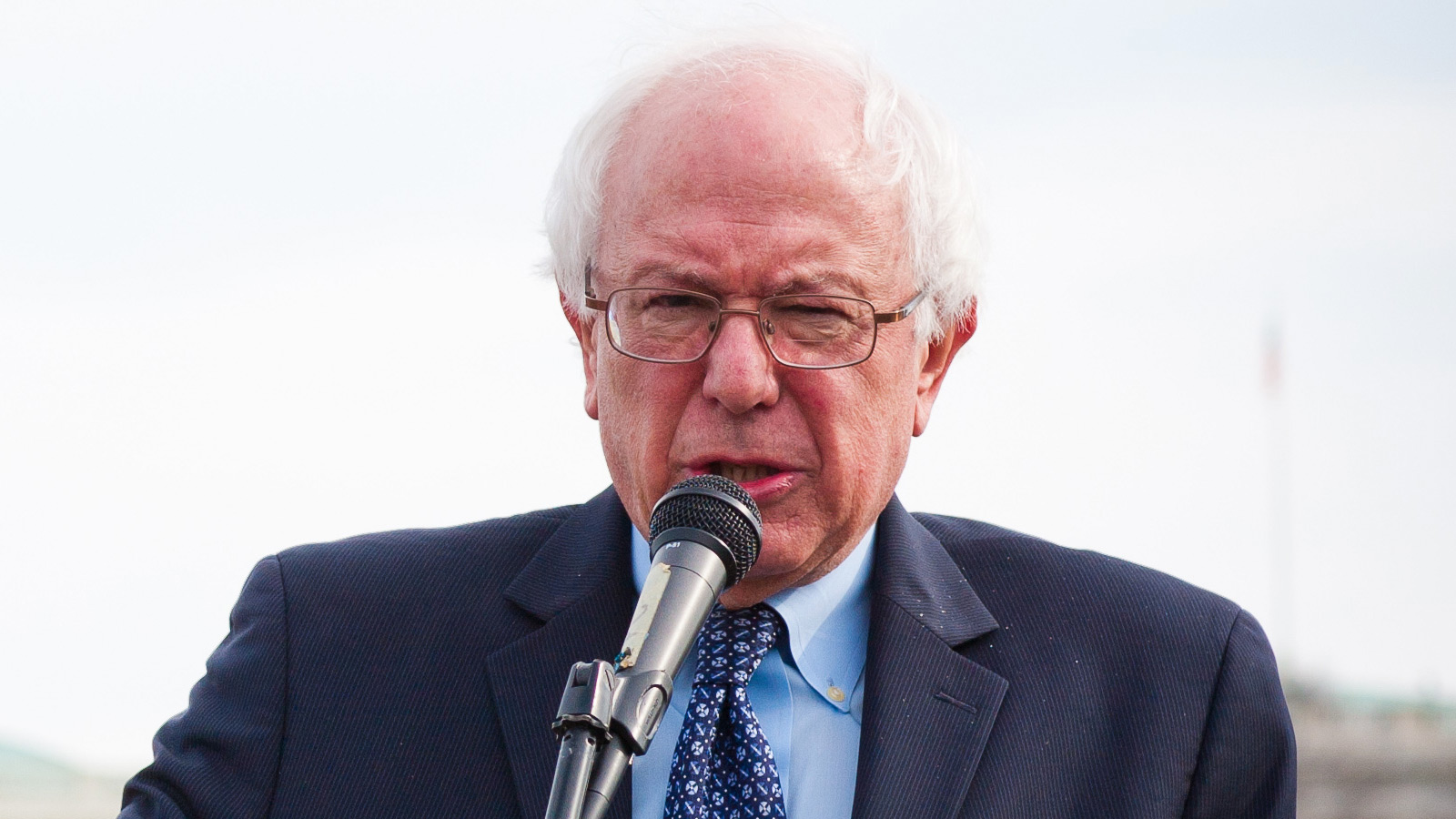Are you feeling frustrated by the lack of action in Washington on the biggest problems facing the nation, such as economic inequality and climate change? Are you tired of watching a moderate Democratic president stuck in stalemate with Republicans in Congress? Well, help may be on the way, in the form of a left-wing presidential campaign that will make you feel good about yourself. Don’t worry that it could take votes from the Democratic nominee and potentially toss the election to the Republican. Ralph Nader did just that in 2000, and things worked out OK, didn’t they?
In an interview with The Nation, Sen. Bernie Sanders, a Vermont independent who caucuses with the Democrats, says, “I am prepared to run for president of the United States.” But he hasn’t made up his mind about whether to run in the Democratic primary or as an independent. He says, “I haven’t reached a conclusion on that yet. Clearly, there are things to be said on both sides of that important question.” And then he muses about how there’s a record-high number of independent voters in the country, but getting in televised debates as an independent would be impossible. (Sanders must expect that like Nader, but unlike Ross Perot, he wouldn’t have the polling numbers to qualify for the debates.)
Based on the experience of right-wing insurgent candidates such as Ron Paul, Pat Buchanan, and Pat Robertson, it seems obvious that running in the primaries will attract the most attention to a candidate who is at one end of the political spectrum. By competing in the Republican primaries, conservative extremists have generated headlines and extracted concessions at the Republican convention.
But that’s less important than the fact that presidential elections are not just an opportunity to advertise a platform. They result in the election of the most powerful officeholder in the world.
Sanders repeatedly mentions the importance of climate change in his Nation interview, and he also acknowledges that Nader’s campaign in 2000 helped elect George W. Bush. Here’s a key portion: “If you run outside of the Democratic Party, then what you’re doing—and you have to think hard about this—you’re not just running a race for president, you’re really running to build an entire political movement. In doing that, you would be taking votes away from the Democratic candidate and making it easier for some right-wing Republican to get elected—the Nader dilemma.”
How can someone who appreciates the threat posed by climate change — and who knows that Nader stopped Al Gore from entering the White House and ushered in a pair of Texas oilmen instead — even contemplate running as a third-party candidate? How would Bernie Sanders feel if he ran in 2016, got more votes than the Republican’s margin of victory, and then President Ted Cruz created another energy task force in the mold of Dick Cheney’s?
What happened with Nader was not a fluke. America has a winner-take-all election system. Such a system will naturally lead to two major parties. It’s basic political science. The same disillusionment with the two major parties that Sanders cites in his interview has been claimed as a justification for efforts like Unity ‘08 and Americans Elect to build centrist third-party challenges. They both failed to even field a ticket.
Absent a constitutional amendment to switch to proportional representation, there will never be three parties with a chance of winning. It will always make sense for the left-leaning parties and factions to coalesce around one candidate. Imagine, for example, that 65 percent of the country was left of center and 35 percent right of center. If the liberal 65 percent splits fairly evenly between two parties, the conservative party will win every election despite representing a minority of the electorate.
If Sanders really wants to move the political spectrum leftward, he should run in the Democratic primaries. For inspiration, he can look across the aisle at the conservative movement. When Bill Buckley founded National Review in 1955, the Republican president, Dwight Eisenhower, was a moderate, and conservatism was marginalized. By running primary candidates such as Barry Goldwater and Ronald Reagan, conservatives took over the party in fits and starts. Within a few decades, any Republican with national aspirations had to proudly proclaim his conservatism and get on the right side of every major issue. Now, Republican incumbents and presidential candidates are easily whipped into line by the base.
Perhaps no issue better demonstrates this than climate change. In the last presidential cycle, Mitt Romney backed off his previous admission that human activity contributes to global warming. Former Minnesota Gov. Tim Pawlenty had to repeatedly apologize for having supported cap-and-trade.
If Sanders is frustrated that the leading Democratic presidential contenders — Hillary Clinton and Joe Biden, in other words — are not more progressive, he should challenge them in the primaries. As conservatives have demonstrated, controlling one of the two major parties is useful. And as Nader demonstrated, running a third-party campaign is not.



